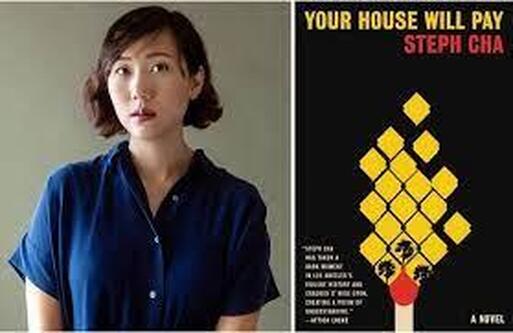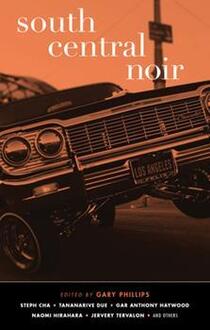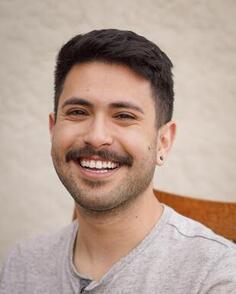|
Sue Staats interviews Steph Cha, one of Stories on Stage Sacramento's March 25 guest authors. Purchase your ticket in advance here, and order a copy of Your House Will Pay to pick up at the event. STEPH CHA IS A WHIRLWIND. by Sue Staats Writer, editor, literary critic, food critic, essayist, prolific Yelp reviewer, author of three detective mystery novels and most recently, the prize-winning crime novel Your House Will Pay. PLUS, her new short story “All Luck” was written last year while she was caring for her newborn AND editing the Best American Mystery and Suspense Anthology AND writing for TV. Did I mention she has a law degree? And that she’s not yet forty? Just writing this paragraph makes me want to take a long nap, but Steph Cha was funny, charming, poised and wide awake when we chatted recently about crime writing as a way to explore social issues, editorial work as a way to improve your writing, Korean cuss words, what a critic looks for when they review YOUR novel, and why there’s nothing wrong with being in a Basset Hound cult. Here we go. Sue Good morning, Steph. Before we get to the story that’s being read at Stories on Stage, “All Luck,” I want to talk about your fascinating crime novel, Your House Will Pay. On one hand it’s a typical crime novel, and on the other hand, it’s not typical at all – it’s a really deft examination of moral complexity and cultural imperatives. The ending was stunning. Unlike any crime novel that I’ve ever read, it solves the mystery but leaves the reader with even bigger questions. Did you intend for the book to become this kind of mystery? Steph Yeah, I did. The way I think of Your House Will Pay—as opposed to my first three novels, which are private investigator novels and formally traditional neo-noirs, and are also mystery novels—is a crime novel. It has a different core, a different set of promises from a mystery novel. But I have to say I have always used mystery and crime victims to explore social issues, because it’s such a great vehicle for exploring place, exploring what’s in the groundwater. So, when I set out to write Your House Will Pay, I thought, I can’t really use the typical mystery structure. I knew when I started that I was going to be dwelling in the points of view of the family members, instead of the detective. So, the structure is a little bit inverted. There is a homicide detective at the edges of the scene, and there is a journalist, and these are the two white male characters in the book, but they’re peripheral. In my other books, the two leads of Your House Will Pay, Grace and Shawn, would be the family members of the victim, or the perpetrator, who were maybe in a scene or two. You don’t spend much time with them, because you’re not going to get all your answers from them. They have pretty limited perspectives. But for this book, theirs was the perspective I was more interested in, and the resolution of the mystery was less meaningful to me. I didn’t want to leave everything open-ended, by any means, but I thought since I was writing a book that dealt heavily with big American institutional problems and structures, I thought it would be pretty disingenuous to try to solve anything. Really, I just wanted to find an interesting way to present them, and this story is the way I did that. Sue I really do love how the ending explodes outward. Steph I will say that the ending seems to be the divisive point among my readership. A lot of people really like it, and a lot of people are really dissatisfied with it. And I think part of the reason is because I come from this traditional mystery background, where it’s kind of a no-no to leave things hanging like that. Sue (laughs) No questions, please, right? We have to wrap it all up! So, do you consider that Your House Will Pay is a signal of a change in direction for you, as a writer? Steph I think so. I love the Juniper Song books. I can always go back to her. I felt like after I had written the first one, the second was better. And after I wrote the third one it was better than the second. I felt like I knew how to write that kind of book, that structure, and I wanted to make sure I was still growing as a writer, to present myself with new challenges. That said, Your House Will Pay was very challenging to write. I don’t know if I have the patience to go back to school like that for my next project, but I like the idea of doing something a little bit different. I also like the flexibility of this in-between genre and literary space. I personally find that a lot of my favorite writing happens there, within that little area where writers care very much about plot, and they’re delivering on plot, but there is this interest in language and character development. And I think that the crime genre allows for all of that. I think I will probably continue to work in this murky, in-between place. Sue For me, that “murky” place makes the novel a really compelling, if a not-quite-so-quick read. Let me swerve a bit to the story being read at Stories on Stage Sacramento, which is called “All Luck.” It could be a chapter from Your House Will Pay, these could be characters in it, and it’s set in the same time and place. Steph This story started because I’d interviewed Gary Phillips, a friend who actually lived through the early nineties in LA, for Your House Will Pay. I lived through that period too, but I was a child, so I didn’t have those experiences. Also, I was in the Valley, having a suburban childhood, and this part of LA’s history sort of missed me. Gary was putting together this anthology for Akashic Books called South Central Noir (forth-coming in September 2022). It’s a wonderful series, collections of stories that explore specific cities. The series is now international, they have collections from all over the world. (Noir fans, check out the Akashic catalogue!) There are a couple of Los Angeles Noir collections, but not South Central. Gary put me on a list of people to ask to contribute. I thought about whether I could; I wasn’t writing very much at the time as I’d just had a baby and didn’t have a lot of childcare, because it was early pandemic days. I decided it would be great to include a little slice of that history, because it’s so prominently associated with that region of LA. Also, I wanted to contribute because there aren’t a lot of Korean-American writers who work in crime in LA. But I also didn’t want to do the same story as Your House Will Pay. I didn’t want to write – well, I’m not the writer who explores Black trauma, that’s not really my area of expertise by any means. For Your House Will Pay I was specifically interested in the Latasha Harlins story. I didn’t want to revisit the same well, where I was exploring the incredible tension between the Black and Asian-American communities. I wanted to do something a little more fun in the same place and time period, in the same kind of world, and the story snuck into me. This kind of down-on-his-luck, n’er do well convenience store owner, smokes a lot, gambles a lot. The voice kind of came to me, and it was fun, because I hadn’t written like this in a male point of view. The only male point of view (in Your House Will Pay) is Shawn, and that’s a very particular, very serious POV. But this guy just kind of popped into my head. I found an article about how these sketchy insurance companies disappeared on Korean policy holders in the wake of the uprising—the so-called “Race Riots” in 1992: here’s just one of many links—and I thought that was pretty interesting, that there must be stories there. And I kind of followed that thread. Sue. It’s true, it is darkly comic in many ways. “All Luck’s” main character is just one of these people nothing ever goes right for. That he’s one of the few male protagonists you’re written brings up something else. Your character, Shawn, is Black. As a Korean American writer, did you get any push-back for delving so deeply into stories of Black people? Steph. I didn’t really get much pushback. Has there been pushback in reader reviews? Yes, of course. I’ve had thousands of reviews, and it definitely makes some readers uncomfortable. But I think because I had a level of buy-in, and because of the structure of the book, it was clear that I wasn’t writing these characters flippantly. And so I get a little bit of a credit for that. I really haven’t had any serious pushback. I also think that the pushback I tend to see about this is on writers who have already lost credibility, or who cross the lines poorly or irresponsibly. I’ve read a lot of books where people explore other points of view, where they don’t share the same demographic characteristics, and I find that when it’s done well, people just don’t talk about that. Sue One more thing about “All Luck.” There’s a phrase that the main character says a lot and I’m curious what it means. It’s “shibal-sekki”. Steph Oh, that means m…..f……r Sue Okay. Thanks. Good to know. And pivoting again. You’re the editor of the Best American Mystery and Suspense Anthology, only the second editor in its forty-year history. Congratulations! You’ve done a lot of editing, and also worked as a literary critic. How do blend this with your own projects? Steph It’s kind of in the background, unless I don’t have much going on in the foreground. The first year that I did Best American it was the main thing I was doing, that and taking care of a newborn. I wasn’t doing much writing, in fact, “All Luck” was one of only two pieces I wrote during the first year of my child’s life. But really, sifting through a mass of short stories, which is really what editing is, was what I was able to do in my downtime, in these little chunks. Although right now I’m still not working on a book, I’m doing TV projects, but I find time to read these stories. And the free lance work (essays, reviewing) is similar. I take assignments, I have editors that I work with, and I’ll do a handful of reviews a year. That keeps me feeling connected to the literary world, too. Because when I was writing mystery fiction, the expectation is that you put out a book a year or people forget about you. So this has been a great way for me to find myself more time between books, while still feeling like a productive member of literary society. Sue As a book critic, are you asked to, mostly, review noir and crime novels? And what do you look for in a book? Steph I get asked to review a variety of work. Certainly a good amount of crime fiction, but some literary. I just reviewed a children’s book. A lot of Asian-American writers. When I pick something, it’s usually up my alley, a little bit crime-y. What I look for is the writing. I read the book, and as I go I highlight every passage, good or bad, that stands out to me. And when I’m done reading I enter all of that into a Word document and what I flag is how I organize my thoughts on a book. And I can tell – if I really hated the book, all the quotes are this bad writing. Or, if something felt really salient, or moving, that will come out in the quotes. I look for writing quality, I look for those moments where a writer tells you something that’s true, in an interesting way. And I like a good, strong concept and a smooth execution. You rarely get all of that, but that’s what I read for. Sue Do you think that being an editor and a critic makes you a better writer? Steph Absolutely. My first book came out in 2013. I started free-lancing in 2014, and for eight years now I’ve been reviewing books, and just the practice of reading for what I like and don’t like, what works and doesn’t work, has really keyed me into what goes into a book’s construction. It’s made me very sensitive to the mistakes a writer can make. I think I’ve always been a decent editor of my own work, but it’s made me much better. I recognize when something just isn’t going well. Sue Maybe more writers should do critiquing and editing. Steph Yeah. It’s all close reading. Sue Switching again: Michael Connolly, one of the premier crime writers in America and author of the Bosch books, had very nice things to say about your work. He’s also had some good success with having his novels picked up for TV. Anything thing for you in that area? Steph Because of streaming, there’s a great hunger for content right now. I only have two properties (The Juniper Song novels, and Your House Will Pay,) and both of those are in development. I’m working on both of them, so this has kept me busy. And I’m also working on different projects not related to my book. I think TV work is a lot of fun. It does keep me from my book work, but… it pays a lot better, and it’s easier, for me, personally, at least. And I love the collaborative nature of it. So I’ve been working in TV. That’s going to contribute to my really long time between books. Sue I have literally six more pages of questions, including, “Tell me about your time working as a scout for the restaurant critic Jonathan Gold, and your 2400 reviews on Yelp, your law degree, and your childhood visiting the Korean community with your mother and grandmother, because you lived in the Valley.” But I think I will leave you with this: Most of your on-line photos are of you with your Basset Hounds. Tell me about them, what they mean in your life, and why we’ve never seen a Basset Hound in your writing. Or, have we? Steph I snuck them in. Not in Your House Will Pay. But I think in Beware, Beware someone is walking a Basset Hound. I can’t sneak them into every book. We have two. One is almost eleven years old, and we got him when he was one. So it’s been almost ten years since I had Bassets enter my life. I wrote an article about this, like a cult freak about the cult of the Basset Bound. Sue Oh, I agree. I have friends – it’s like the only dog in the world. Steph Oh yeah. I wasn’t particularly a dog person before we got our first Basset Hound. I didn’t grow up having dogs. But my husband always wanted a Basset Hound He grew up with a Golden Retriever but he always thought Basset Hounds were so funny, and he put the idea in my head. And when we moved into our first place together, we kind of looked around and we found the Basset Hound rescue in Southern California, and we got our first dog from there. And then we were kind of involved in that rescue world, and so we got this other one, who has a lot of personality and is a significantly worse dog, but we love him the same. They’re really pack animals, too. Sue You can’t have just one? Steph Exactly. So now we’re just constantly beset by Bassets, as we say around here. I will say they have lost a considerable amount of status since our child was born. But I think it’s funny to have a house that’s full of Basset Hounds. Sue Having a child must be a pretty amazing adventure for you, and probably challenging to fit into your life. Steph You know what, honestly, I can’t complain. We have the best setup of anybody I know of. We have money for full time childcare, which allows me to write or work or whatever this is I do, this combination of a million things that becomes a career. I am able to do all that while someone else watches my kid, and my parents also live eight blocks away. So we have an ideal setup that I honestly wish more people could have access to. It’s amazing what you can get done when child care is not the first thing you are thinking about every single day. And I also say that because the first year we did not have that. So the amount of work I was able to get done now, versus then, is completely different. But we also got a full year where we were both working from home, and my parents were there to help out, so it’s been a very rewarding experience for me, with very few downsides. Sue. Thanks for your time. And I look forward to meeting you at Stories on Stage. Steph. Yeah, actually we decided to make a family trip out of it. My husband said, why don’t we just try and take the baby. Sue Oh! Bring him to the evet.! We love babies. Steph. Ooh, I don’t know. He’s almost two years old…. Thanks so much to the charming and funny Steph Cha for her time and insight. We look forward to welcoming her and her family to Stories on Stage Sacramento! And you will love the story, which is being read by Stories on Stage Sacramento newcomer Larry Lew. This interview was edited for length and clarity. Sue Staats is a Sacramento writer. She directed Stories on Stage Sacramento for six years, from 2013 to 2019, and now contributes interviews and blog posts to the website, and cookies to the events (when they aren't virtual). She’s currently looking for a home for her short story collection and getting her feet wet in a couple of other projects, with the hope that eventually one of them will draw her into deeper waters. Sue's fiction and poetry have been published in The Los Angeles Review, Graze Magazine, Tulip Tree Review, Farallon Review, Tule Review, Late Peaches: Poems by Sacramento Poets, Sacramento Voices, and others. She earned an MFA from Pacific University, and was a finalist for the Gulf Coast Prize in Fiction and the Nisqually Prize in Fiction. Her stories have been performed at Stories on Stage Sacramento and Stories on Stage Davis, and at the SF Bay-area reading series “Why There Are Words.”
0 Comments
Leave a Reply. |
|
Who We AreLiterature. Live!
Stories on Stage Sacramento is an award-winning, nonprofit literary performance series featuring stories by local, national and international authors performed aloud by professional actors. Designated as Best of the City 2019 by Sactown Magazine and Best Virtual Music or Entertainment Experience of 2021 by Sacramento Magazine. |
|




 RSS Feed
RSS Feed
